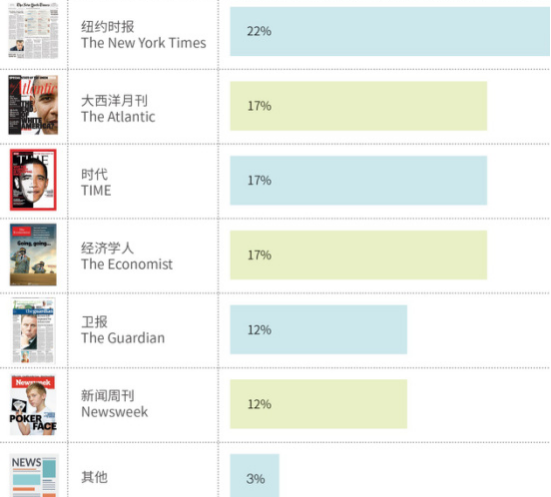英语六级阅读技巧之题源文章
备考四六级的小伙伴们,你们了解四六级考试真题文章都出自哪里吗?只有了解了题源,考试才能事半功倍。全国四、六级考试命题研究中心对历年真题中阅读三大题型的文章题源进行了系统的统计,看↓↓

根据以上统计数据,小编特意挑选了一遍与六级难度相近的题源文章,让大家感受一下四六级的文章,同学们平时也可以多看这类的文章,熟悉考试文章难度。
【主要内容】
本文介绍了英国约克大学生物学家彼得·梅休的一项最新研究,该研究与以往不同,彼得认为从长期来看,全球变暖可能会导致生物物种的增加。在文章最后,他指出,如果想看到地球上的物种数量随着气温变化而增加,就需要首先抑制地球上的鲁莽行为。
【题源文章】
University of York biologist Peter Mayhew recently found that global warming might actually increase the number of species on the planet, contrary to a previous report that higher temperatures meant fewer life forms—a report that was his own. In Mayhew's initial 2008 study, low biodiversity among marine invertebrates (无脊椎动物) appeared to coincide with warmer temperatures on Earth over the last 520 million years. But Mayhew and his colleagues decided to reexamine their hypothesis, this time using data that were “a fairer sample of the history of life.” With this new collection of material, they found a complete reversal of the relationship between species richness and temperature from what their previous paper argued: the number of different groups present in the fossil record was higher, rather than lower, during “greenhouse phases”.
Their previous findings rested on an assumption that fossil records can be taken to represent biodiversity changes throughout history. This isn't necessarily the case, because there are certain periods with higher-quality fossil samples, and some that are much more difficult to sample well. Aware of this bias, Mayhew's team used data that standardized the number of fossils examined throughout history and accounted for other variables like sea level changes that might influence biodiversity in their new study to see if their old results would hold up.
Two years later, the results did not. But then why doesn't life increasingly emerge on Earth as our temperatures get warmer? While the switch may prompt some to assert that climate change is not hazardous to living creatures, Mayhew explained that the timescales in his team's study are huge—over 500 million years—and therefore inappropriate for the shorter periods that we might look at as humans concerned about global warming. Many global warming concerns are focused on the next century, he said—and the lifetime of a species is typically one to 10 million years.
“I do worry that these findings will be used by the climate skeptic community to say ‘look, climate warming is fine,’” he said. Not to mention the numerous other things we seem to do to create a storm of threats to biodiversity—think of what habitat (栖息地) destruction, over-fishing, and pollution can do for a species-viability (生存力).
Those things, Mayhew explained, give the organisms a far greater challenge in coping with climate change than they would have had in the absence of humans.
“If we were to relax all these pressures on biodiversity and allow the world to recover over millions of years in a warmer climate, then my prediction is it would be an improvement in biodiversity,” he said. So it looks like we need to curb our reckless treatment of the planet first, if we want to eventually see a surge in the number of species on the planet as temperatures get warmer. We don't have 500 million years to wait.
本文选自《时代周刊》
【必背词汇短语】
inappropriate a. 不适当的,不相称的
reckless a. 鲁莽的,不顾后果的
reexamine v. 再检查
reversal n. 逆转,撤销
standardize v. 使标准化;用标准检验
account for 对……的解释,说明……的原因
contrary to 与 ……相反
小编温馨提示:
下半年大学英语六级考试马上就要开始,学霸的你已经准备好了吗?
更多大学英语六级考试试题在这里>>>大学英语六级考试题库




